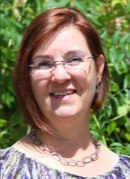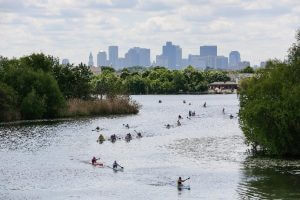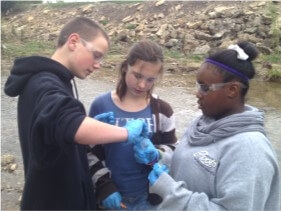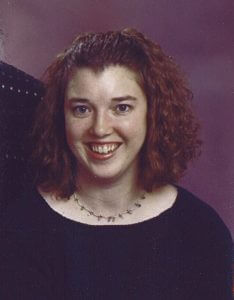Congratulations, 2017 Urban Waters Learning Network Award Winners!
The Urban Waters Learning Network Awards celebrate Learning Network members making significant achievements toward improving their urban waterways and revitalizing the neighborhoods around them. These members embody the spirit and value of the Learning Network and exemplify the Urban Waters Learning Network’s goal of providing peer-to-peer support, solving challenges through collaboration, and sharing. Award recipients were chosen by a selection committee chaired by the Learning Network Coordinators, River Network and Groundwork USA.
Each awardee will receive financial support to share their work at the Urban Waters Learning Forum and attend River Rally 2017, both of which will take place in Grand Rapids, Michigan from May 8-11. In addition, each awardee will receive professional support worth up to $6,500 to create either a 30-90 second promotional video on the winner’s work, or a branded two-page flyer or product promoting a topic of the winner’s choice and/or a logo or infographic of the winner’s choice. Winners will receive their awards at the Urban Waters Learning Forum.
The winners are:
Sara Peel
Wabash River Enhancement Corporation
Signature Award
Sara Peel’s modus operandi is to remove the social, economic, and technical barriers that have prevented people from adopting practices to improve the quality of the Wabash River. Her leadership has helped:
- Measurably increase residents’ perception of how the river impacts the local economy and contributes to community identity, while increasing technical knowledge about practices like rain gardens and pervious pavement.
- Create a technical assistance program that empowers residents and farmers to overcome the economic barriers of hiring contractors to install river-friendly projects on their property.
- Expand and cultivate the next generation of stewards, providing Purdue University students with opportunities for service learning in partnership with faculty through 12 unique courses.
In total, Sara’s efforts have reduced loads of nitrogen (655,323 lbs), phosphorus (276,350 lbs), and sediment (21,062 tons) to the Wabash River yearly; prevented nearly 99.5 million gallons of stormwater from entering the river; and saved nearly $3.4 billion in future sediment removal and stormwater treatment costs.
Secrets of her success: quietly involving those around her, sharing her knowledge, building partnerships, studying successful programs, and providing mentoring and guidance to those who will follow.
“Sara has a long history of fostering partnerships, not only with Purdue faculty, staff and students, but also with urban residents and corporate entities.” – Prof. Lindsey Payne, Purdue University
“She’s been an active sharer, motivator & mentor since the Learning Network began; we are so lucky,” -Diana Toledo & Ann-Marie Mitroff, Network Coordinators
Karen Bishop
San Antonio River Authority
Green Infrastructure Expert
 For 15 years, Karen Bishop has focused on improving the water quality of the San Antonio River and its tributaries. She has been a leader promoting sustainable techniques such as Low Impact Development (LID), Green Infrastructure, and Natural Channel Design both at San Antonio River Authority (SARA) and throughout the community.
For 15 years, Karen Bishop has focused on improving the water quality of the San Antonio River and its tributaries. She has been a leader promoting sustainable techniques such as Low Impact Development (LID), Green Infrastructure, and Natural Channel Design both at San Antonio River Authority (SARA) and throughout the community.
Karen’s patience and use of data have generated buy-in for these techniques by demonstrating how stormwater runoff impacts stream and human health, even to traditionally resistant audiences. She developed a Low Impact Development Design Competition to engage the local community in addressing stormwater pollution. Instead of burying the city’s infrastructure, this project and many of Karen’s other endeavors, such as an LID Technical Guidance Manual, have shown San Antonio residents how natural infrastructure can double as community amenities.
San Antonio has stake in creating these amenities and improving the health of the river. The San Antonio River Walk alone generates over $3.1 billion annually. Karen has shined a spotlight on these benefits and used them to catalyze continued commitment to green infrastructure and LID across the region.
“Karen’s rise in position, authority, and influence at SARA is a direct reflection of her passion, commitment, and understanding of water quality and stormwater management issues…. [Her] work to generate lasting and recognized improvements in the health of the San Antonio River Watershed is a direct contribution to the Urban Waters movement.” – Steven Schauer, SARA
Mystic River Watershed Association
Green Infrastructure Expert
The Mystic River Watershed Association (MyRWA) turned an Urban Waters Small Grant project into a public-private collaboration leveraging federal dollars, local municipal experience, private technical expertise, and MyRWA’s ability to build long-term relationships to grow local capacity to improve and protect urban waters.
Green infrastructure (GI) planning is a collaborative process. Through a series of meetings, public charrettes, and an analysis of phosphorous loading and GI feasibility, MyRWA delivered much more than tailored stormwater educational materials to each partner municipality. Rather, they delivered to each municipality a blueprint for how they could move forward to improve water quality and create amenities for local residents.
The project goal was to equip the municipalities of Everett, Malden, and Medford, Massachusetts with a set of tools to move forward with green infrastructure and stormwater education. In doing this, MyRWA built the momentum across partners to continue their collaboration beyond the scope of this project. One of the cities has since been awarded two grants to implement GI solutions identified with MyRWA, while MyRWA is expanding its stormwater education program from 3 to 12+ municipalities in hopes of growing a regional-scale stormwater education collaborative.
“The grant from EPA allowed us to mobilize the trust we had cultivated over many years.” – Andrew Hrycyna, MyRWA.
 Blue River Watershed Association
Blue River Watershed Association
Environmental Education Expert
Blue River Watershed Association’s (BRWA) STREAM Teams are connecting youth to the Blue River and engaging communities in water quality education. The Blue River is known as one of the most polluted urban rivers in the country, but these teams of urban middle school students and their mentors are working to change that reputation.
STREAM—Students Teaching River Education Around the Metro—had students tour the watershed learning about history, ecology, and how urbanization affects rivers. They used their knowledge to build community projects and made water quality presentations to local groups like churches and PTAs. Students also presented to the Kansas City Missouri City Council.
This project led to ongoing efforts, beyond the scope of their Urban Waters grant, to improve water quality in the Blue River. Teams continue to participate in BRWA events and the City Council now considers water quality impacts when hearing public improvements advisory committee requests.
“Before I participated in this program, I barely thought of the importance of water, or our watershed…. I’ve learned that we need to understand what we do to our water and need to be more aware of how pollution impacts our water system.” – Andrew, age 13.
“I never thought that I wanted to go to college, but if I have to go to college to do this – then I will.” – Brittany, age 13.
To learn more about the Urban Waters Learning Network, go to www.urbanwaterslearningnetwork.org





